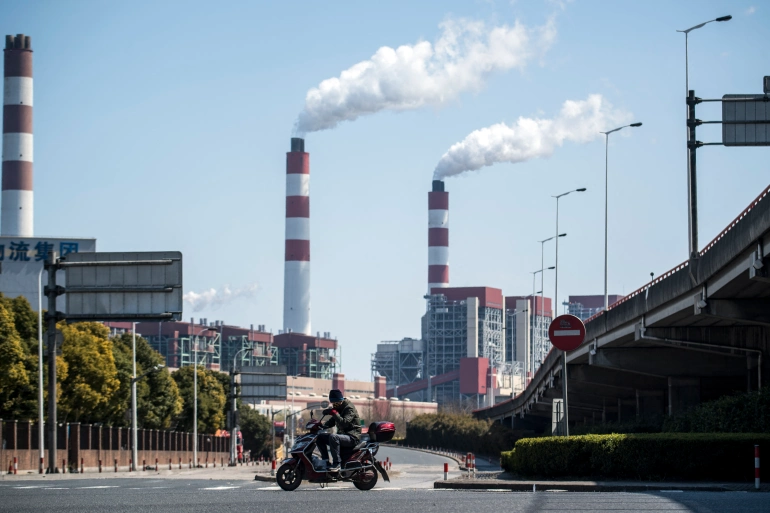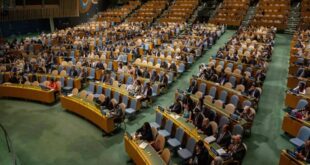
The West should respond to Beijing’s pledge not to fund coal plants by pressuring its private sector to follow suit.
In front of the world’s leaders at the United Nations General Assembly last month, China’s President Xi Jinping pledged that his country “will not build new coal-fired power projects abroad.” This decision is a major step towards aligning global finance with our collective climate and development goals and it could help build momentum for private sector defunding of coal energy production as well.
Since the global financial crisis of 2008, China’s two global policy banks, the China Development Bank and the Export-Import Bank of China, have brought a stepwise increase in public finance for energy and infrastructure that has been filling major financial gaps and fostering economic growth in emerging market and developing countries.
At Boston University’s Global Development Policy Center, we compile databases that track China’s overseas development finance in general and energy in particular. According to our research, these two banks provided upwards of $460bn to foreign governments between 2008 and 2019, roughly equivalent to what the World Bank has distributed during the same period.
We also estimated that between 2007 and 2016, China’s policy banks provided some $197bn in finance to foreign governments for energy – nearly matching the total financing of all the major Western-backed MDBs combined. In work with Princeton University colleagues, we found that Chinese finance was the equivalent to 42 percent of the power generation capacity financed by the 10 largest MDBs.
While China must be credited with filling infrastructure finance gaps in a growth-enhancing manner, the composition of that finance, especially in the energy sector, is concentrated in heavily carbon-intensive sectors. Coal, oil, gas, and hydroelectric power in tropical forests dominate Chinese energy financing. Such financing poses risks to the global climate, public health, and biodiversity.
Around the time of the 2015 Paris Climate Agreement, most of the MDBs started phasing out overseas coal finance, and in May 2021 the G7 pledged “to take concrete steps towards an absolute end to new direct government support for unabated international thermal coal power generation by the end of 2021”.
Then China’s announcement came in September this year. Initially, there was some concern that the language of the pledge did not appear as clear as that of the G7. Some wondered if pledging not to “build” new coal plants truly meant financing coal.
However, shortly after’s Xi’s UN speech, the Bank of China announced that it would stop financing overseas coal mining and power plants this year. In one fell swoop, China matched the G7 pledge and upped the game to where the real action is – in the commercial and private sector.
More than 80 percent of all newly added coal generation capacity outside China between 2013 and 2019 was financed by non-Chinese entities. Among the largest lenders to the global coal industry are Japanese firms such as Mizuho Financial and SMBC Group and American financial giants such as Citigroup, Bank of America, and JP Morgan. The Bank of China was also among the top lenders to the coal industry until its recent pledge.
Now that the world’s major governments have led by example and banned overseas coal plants, and the Bank of China has joined them, it is time for the private sector to follow suit. Without private financial institutions buying into defunding coal energy production, we will not meet our global climate and development goals.
Moving forward, two things are imperative. First, the West must put pressure on the private sector to phase out coal as well. Second, rather than turning off the spigot, global financial actors need to shift the composition of energy finance towards cleaner energy such as wind and solar power.
China and the West should not cut off energy finance to countries in need. Rather, they should replace coal finance with support for wind and solar power, two industries where China is most dominant.
In a recent paper, we found that there are renewable energy opportunities worth $1 trillion in developing countries, based on these countries’ own plans through their Nationally Determined Contributions for the Paris Agreement. Given China’s dominance in these sectors and the prowess of its policy banks, if it channels its tremendous capital, technology and know-how towards these plans, it can dramatically expand green energy access throughout the developing world.

Kevin P Gallagher – Professor and director of the Global Development Policy Center at Boston Unversity / Aljazeera ENG




 World Opinions Débats De Société, Questions, Opinions et Tribunes.. La Voix Des Sans-Voix | Alternative Média
World Opinions Débats De Société, Questions, Opinions et Tribunes.. La Voix Des Sans-Voix | Alternative Média




